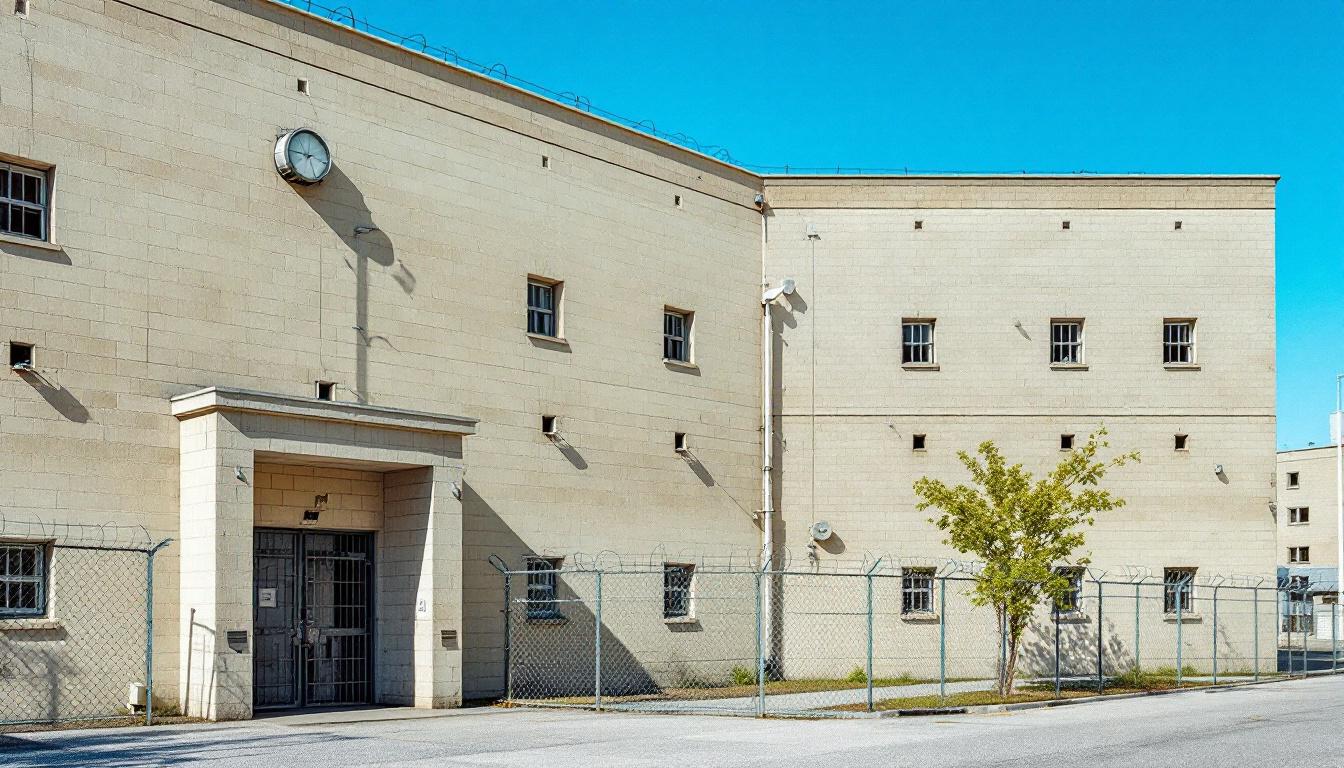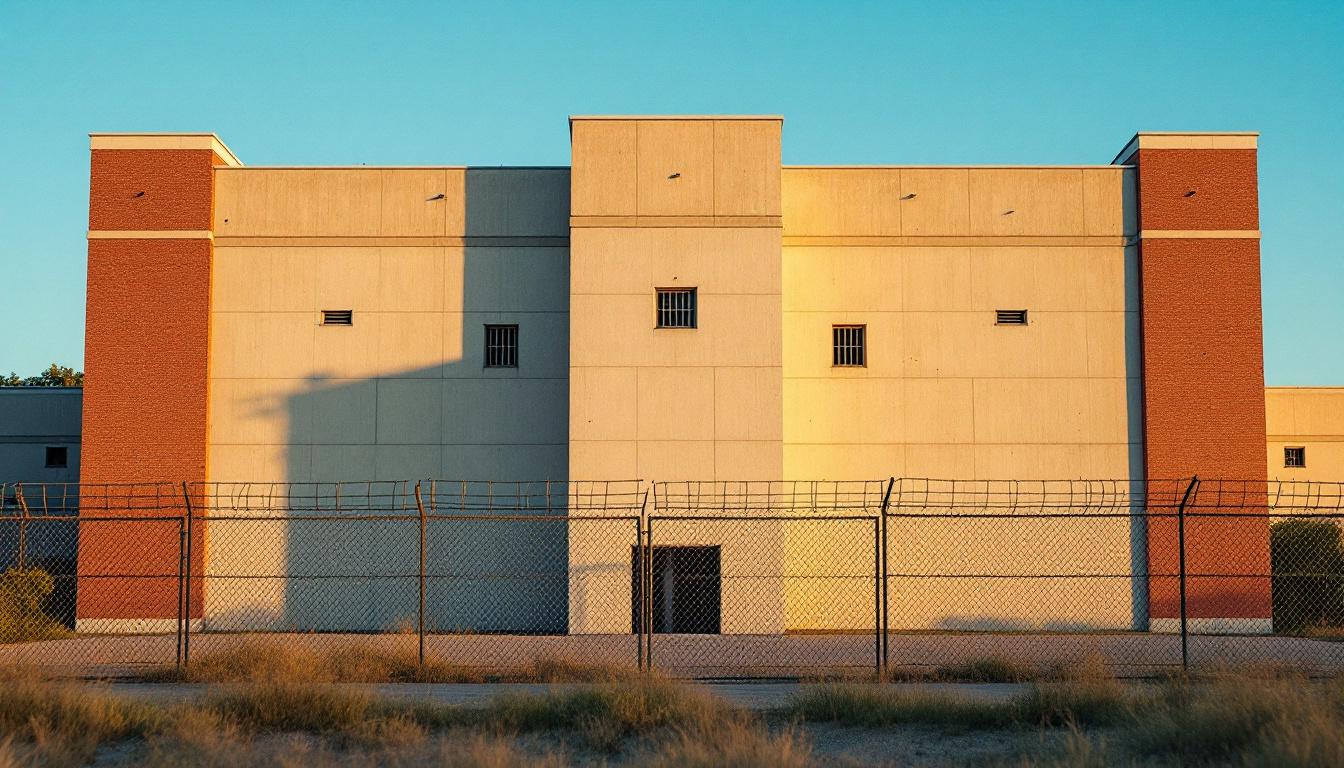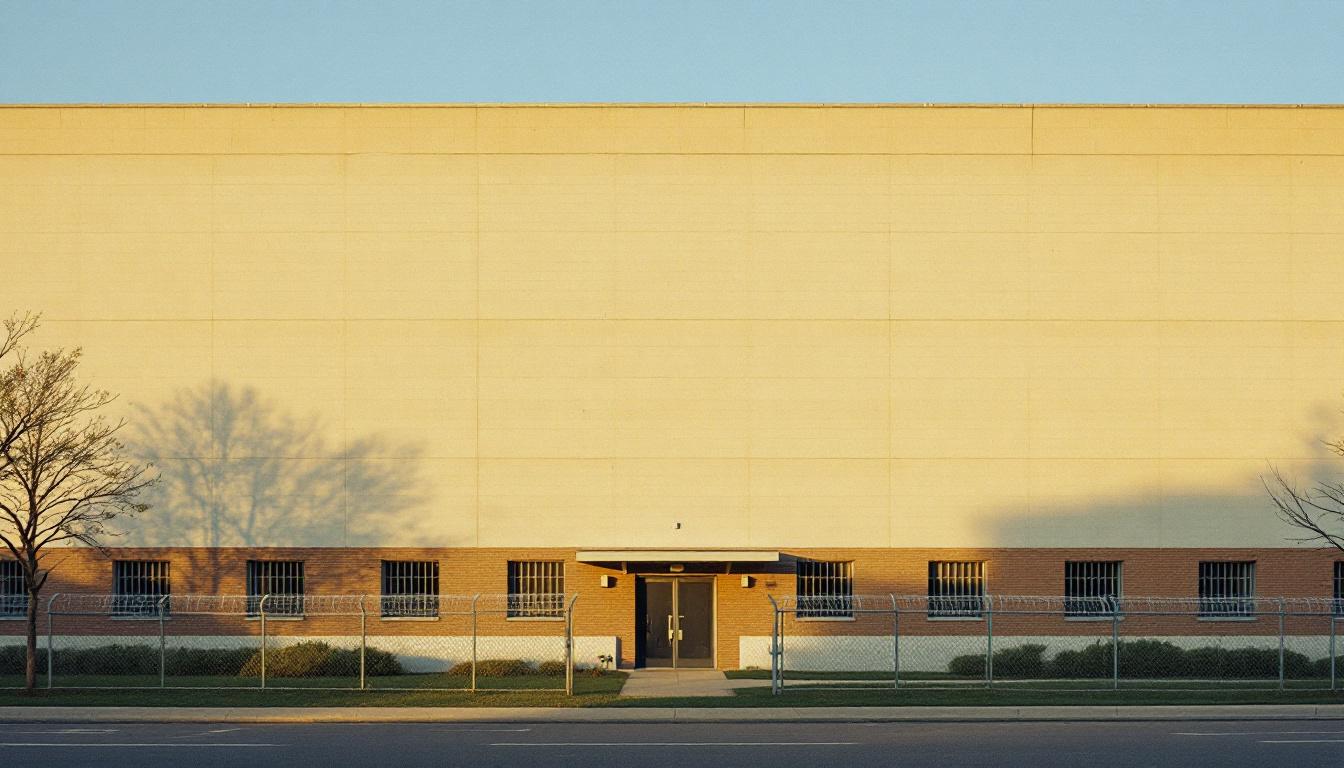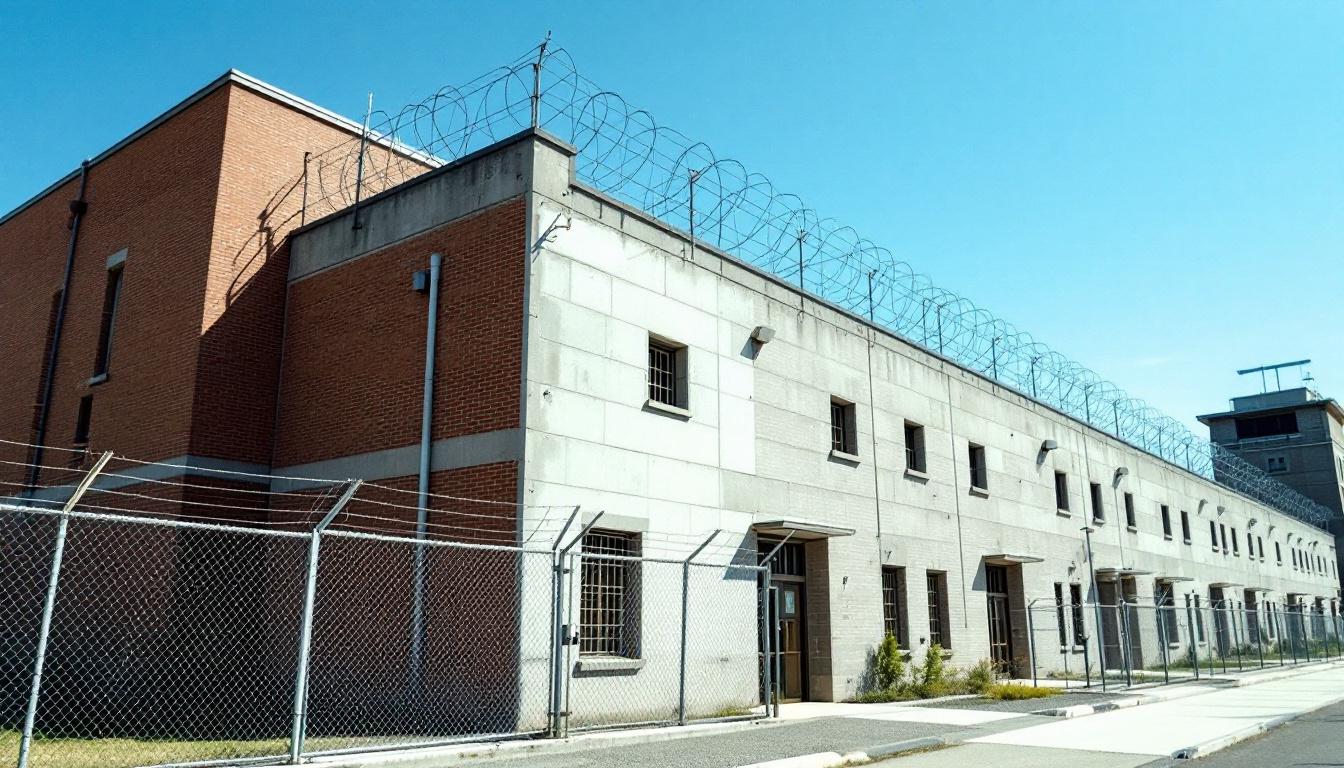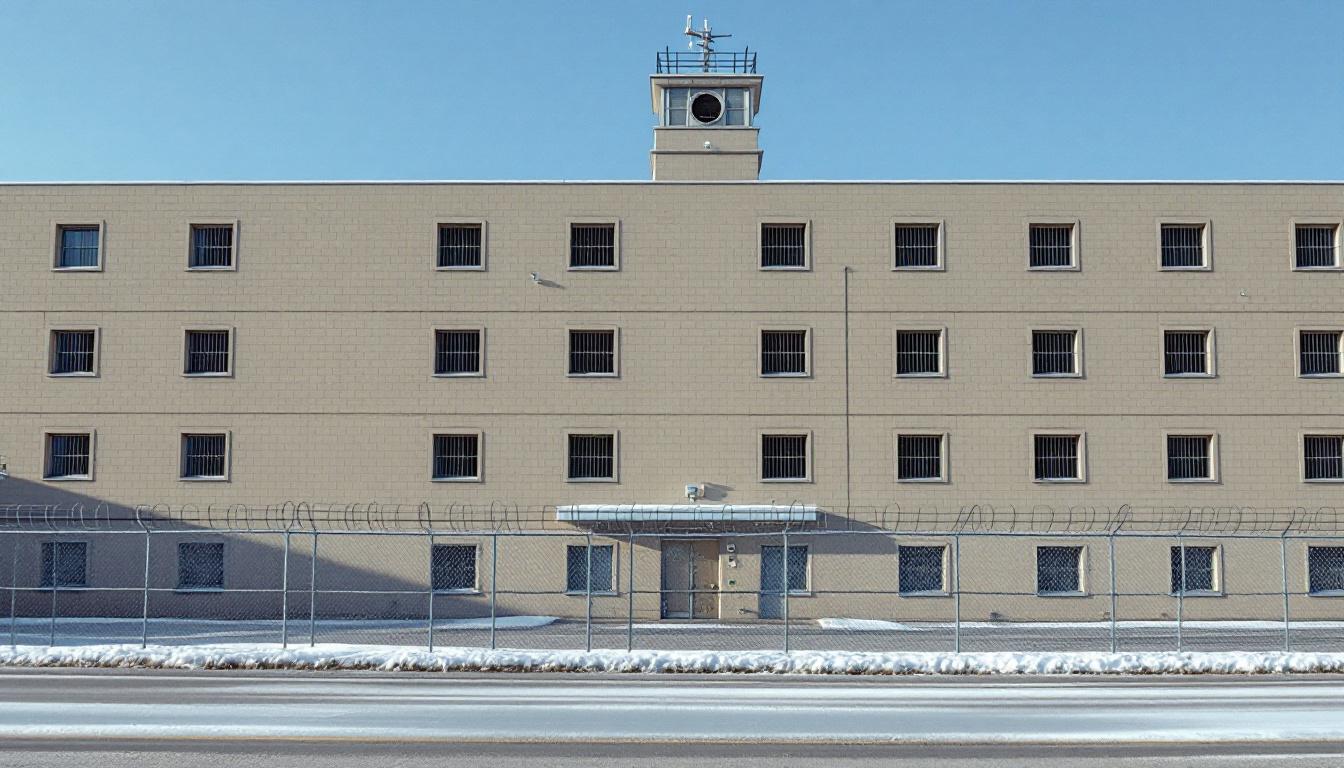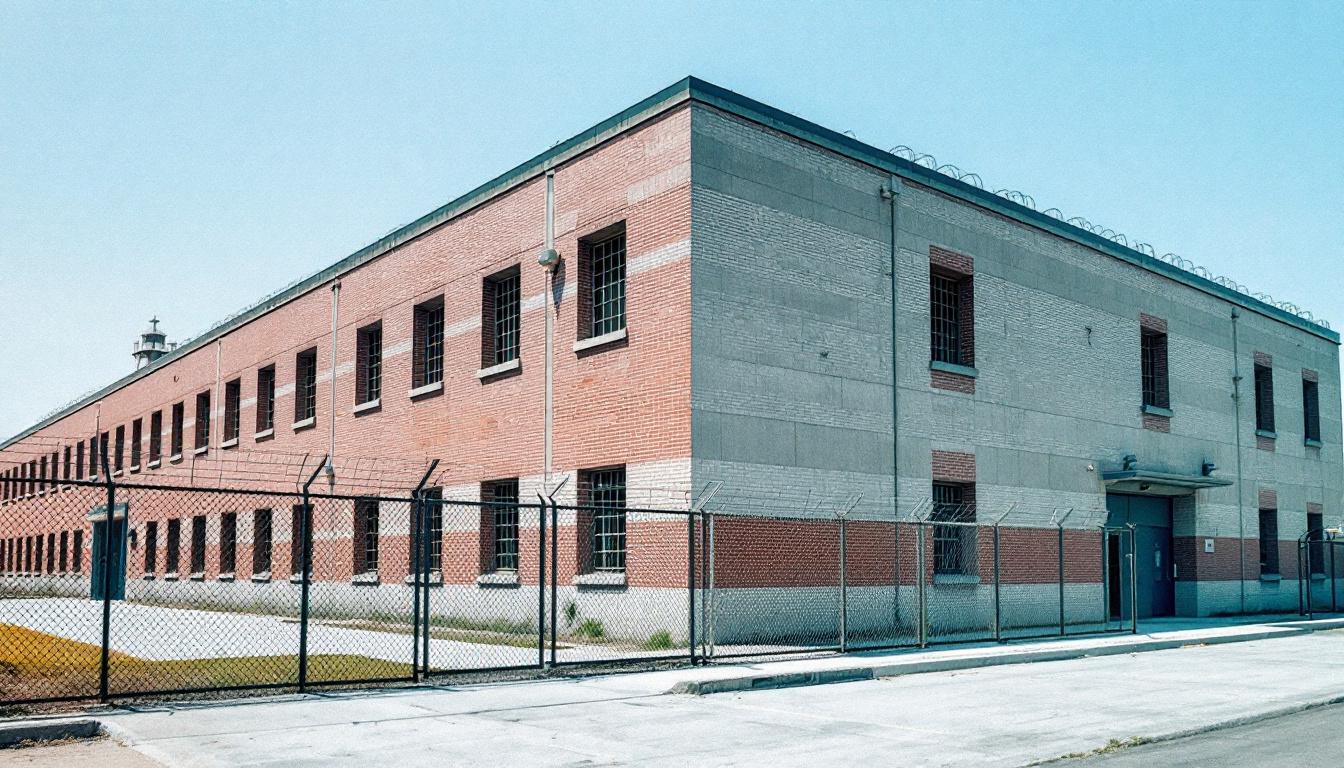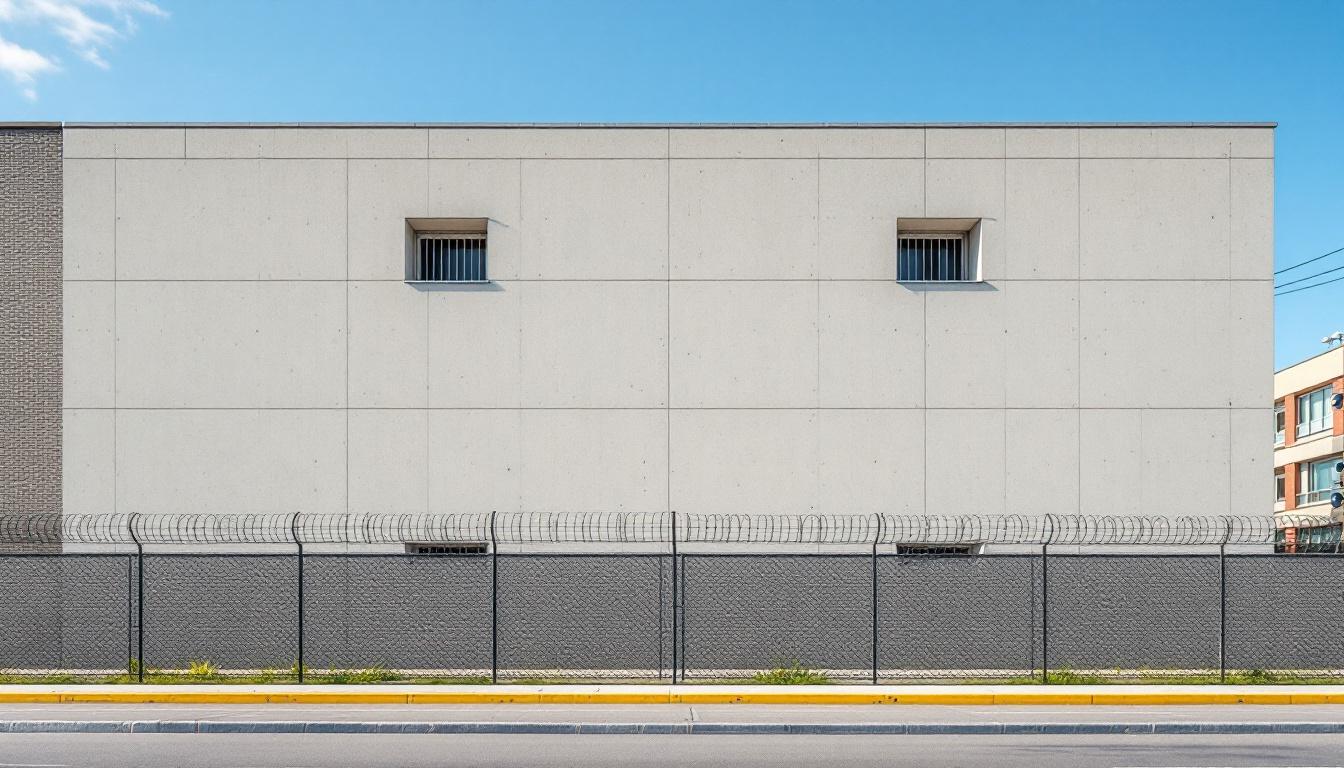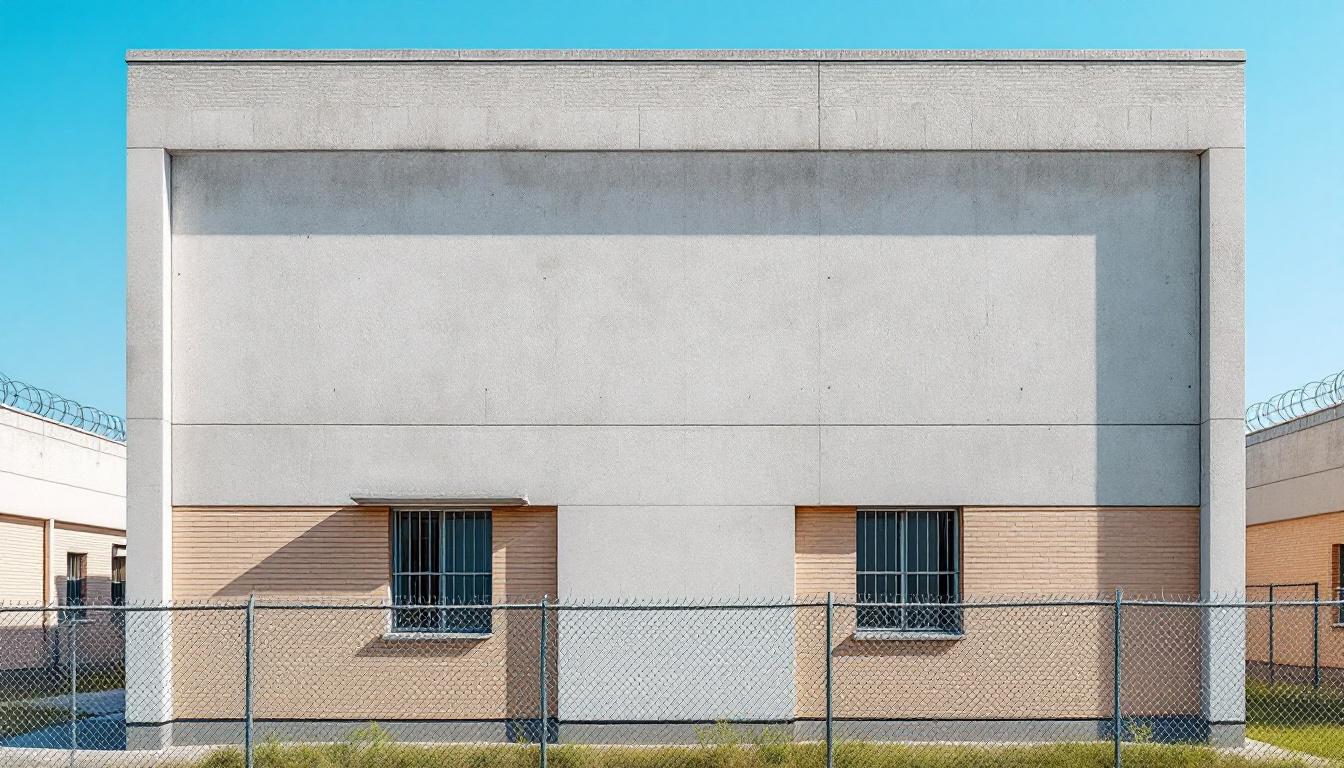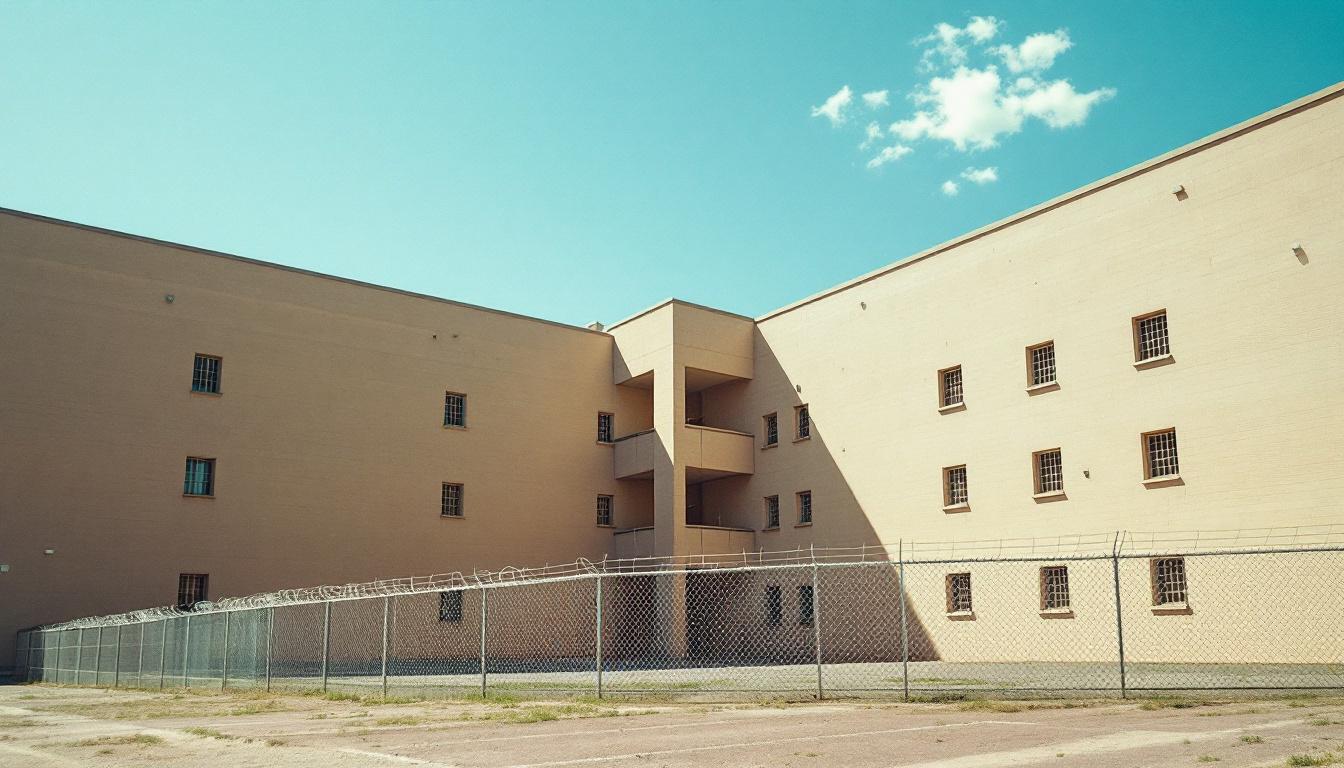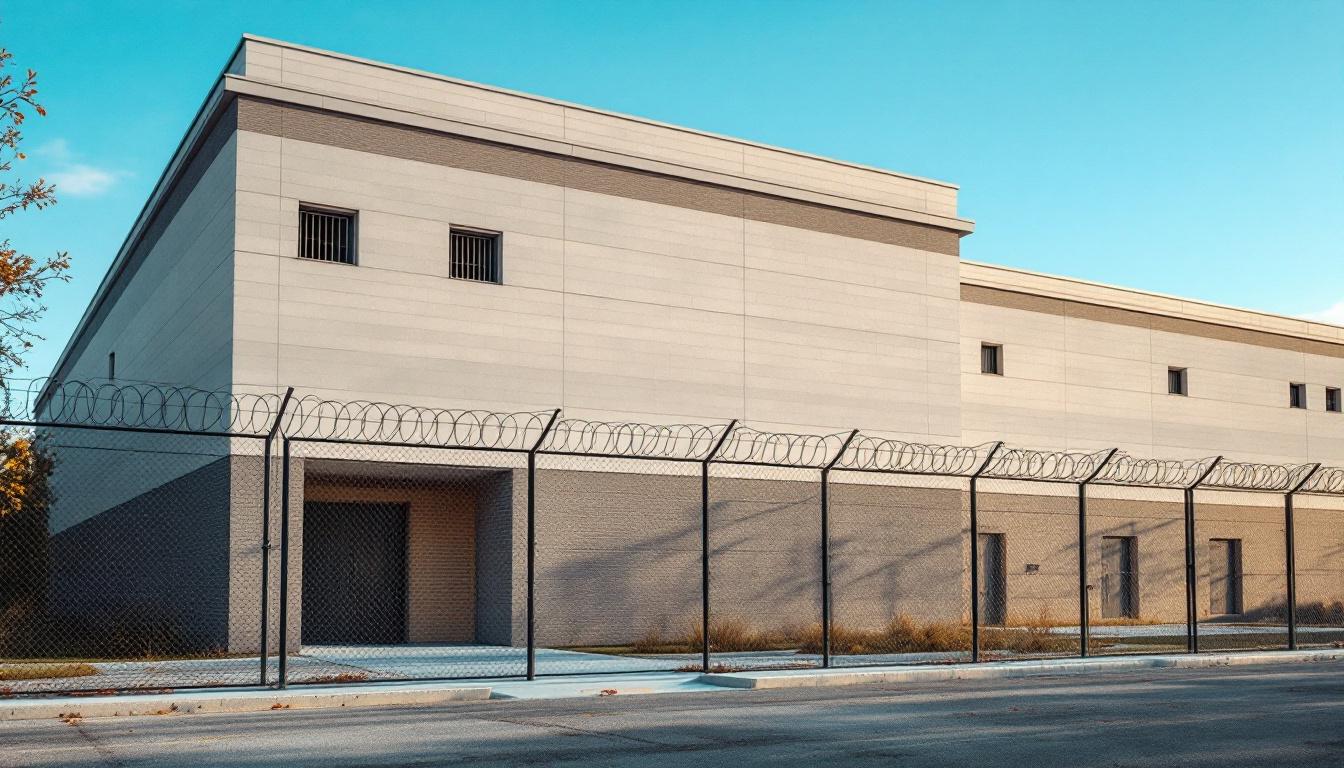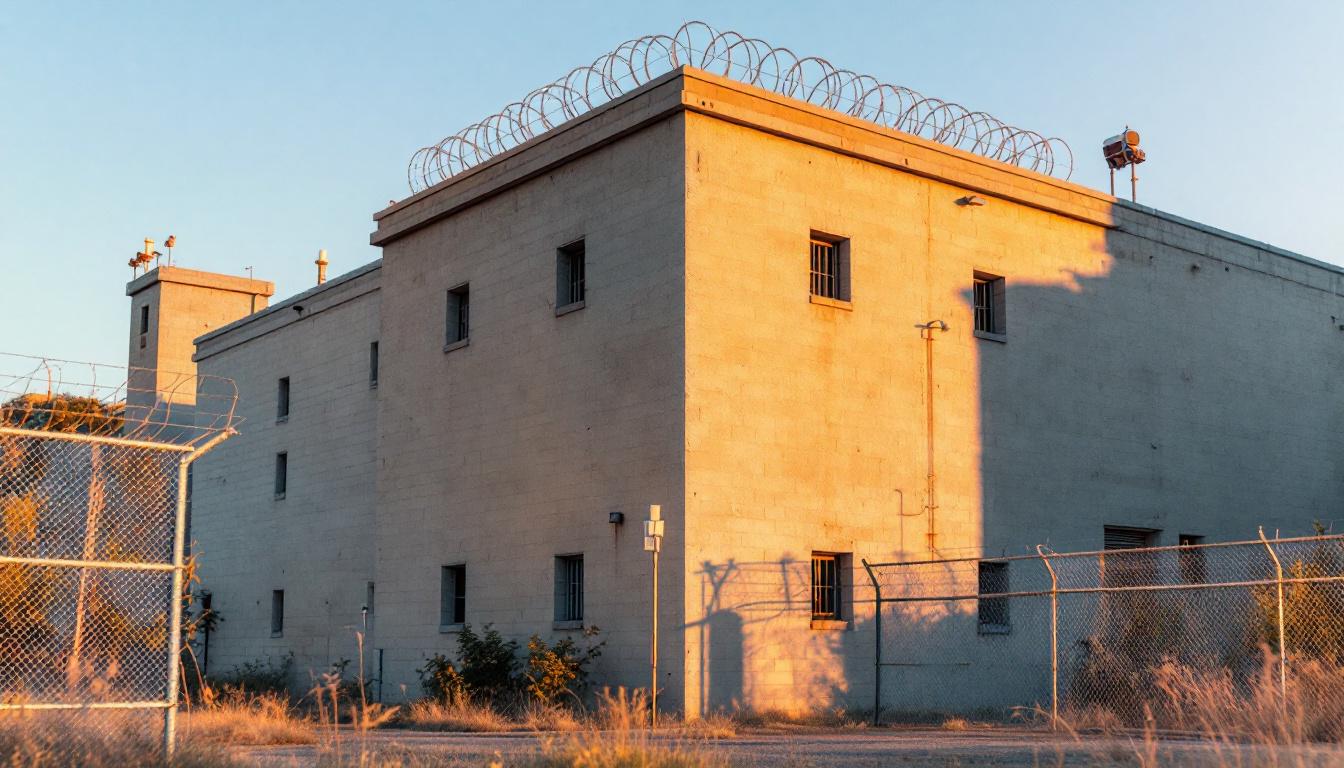
Quick Navigation
How to contact an inmate at Roederer Correctional Complex
This comprehensive guide will walk you through how to connect with an inmate at Roederer Correctional Complex. Follow the steps below to find an inmate and send letters and photos:
- Search for the inmate using our search tool below
- Create your account or log in to Penmate
- Write your message (up to 6,000 characters)
- Send instantly - inmates receive printed copies daily
Find an Inmate
Search for an inmate to start communicating today
Tip: You can search by first name, last name, or inmate ID number
To contact a person at Roederer Correctional Complex start by searching for the person on the official facility website. Perform a search by following these steps:
- Step 1: Enter their first name and last name into the search form and click "Search"
- Step 2: Locate their inmate record
- Step 3: Write down their Inmate ID and any housing information provided
Important! Be sure to enter the person's full name. Nicknames should not be used.
How to Send Messages to Inmates

You can use your phone or computer to send emails, letters, and photos to an inmate. Messages are sent electronically to inmate tablets or kiosks at the facility. If you would like to send a message, start by searching for an inmate at Roederer Correctional Complex.
Sending Photos and Postcards

A great way to send love and support to a loved one at Roederer Correctional Complex is to send photos and postcards. It only takes a few minutes to send photos from your phone and it makes a huge difference. You can also mail postcards with words of support and inspiration, or design your own postcard for special moments like birthdays and holidays.
Important! Be sure not to send any explicit photos or they may not be approved by the facility. You can also use a photo printing app like Penmate to make sure your photos are printed at the correct size (4x6 or 3x5) and are mailed according to the rules and regulations of Roederer Correctional Complex.
Frequently asked questions about Roederer Correctional Complex
-
How long does it take to deliver a message?
If you're sending an email message your letter is usually delivered within 24-48 hours. For messages sent via mail you should expect delivery within 3-7 days. All messages will need be approved by Roederer Correctional Complex.
-
How much does it cost to send a message to Roederer Correctional Complex?
You can send a message free using your phone or mail a message via USPS for the price of a $0.60 stamp and envelope. You can also purchase credits or e-stamps from services starting at $1.99.
-
What services can I use to contact an inmate at Roederer Correctional Complex?
Penmate
You can use Penmate to send letters and photos to an inmate from your phone. It's an easy way to stay in touch during your loved one's incarceration. Use the inmate locator to find an inmate's location and contact information, then you can send messages within a few minutes.
Securus messaging
Securus may be another option for communicating with an inmate at Roederer Correctional Complex. You can create a friends and family account and purchase credits to send messages. All messages will be reviewed and must be approved by the facility.
JPay
Some county jails and state prisons may support sending messages with JPay. You must register an account with the system, find your loved one, and purchase stamps to send messages. For some locations you can also attach photos.
Smart Jail Mail
You may also check if Smart Jail Mail is available at Roederer Correctional Complex. Smart Jail Mail is operated by Smart Communications and has contracted with some state and county jails. After purchasing credits, your messages and photos are sent to the facility, printed out, and then handed out to your loved one.
-
What is the mailing address of Roederer Correctional Complex?
Mailing address:
Roederer Correctional Complex
4000 Morgan Rd
La Grange, KY 40031
Phone: (502) 222-0170 -
What are the visiting hours at Roederer Correctional Complex?
Visiting hours at Roederer Correctional Complex vary by housing unit and security level. Generally, visits are scheduled on weekends and holidays, with some facilities offering weekday visits. Contact the facility directly at (502) 222-0170 or check their website for the current visiting schedule. Visits typically last 30-60 minutes and must be scheduled in advance.
-
What items are prohibited when sending mail to Roederer Correctional Complex?
Prohibited items typically include: cash, personal checks, stamps, stickers, glitter, glue, tape, staples, paperclips, polaroid photos, musical or blank greeting cards, hardcover books, magazines with staples, and any items containing metal or electronics. Only send letters on plain white paper with blue or black ink. Photos must be printed on regular photo paper (no Polaroids). Always check with Roederer Correctional Complex for their specific mail policies.
-
How do I send money to an inmate at Roederer Correctional Complex?
You can send money to an inmate at Roederer Correctional Complex through several methods: 1) Online using JPay, Access Corrections, or the facility's approved vendor, 2) Money orders mailed directly to the facility with the inmate's name and ID number, 3) Kiosks located in the facility lobby, or 4) Over the phone using a credit or debit card. Fees vary by method, typically ranging from $2.95 to $11.95 per transaction.
-
Can I schedule a video visit with an inmate at Roederer Correctional Complex?
Many facilities now offer video visitation as an alternative to in-person visits. At Roederer Correctional Complex, video visits may be available through services like Penmate, Securus Video Connect, GTL, or ICSolutions. Video visits typically cost $10-20 for 20-30 minutes and must be scheduled in advance. You'll need a computer or smartphone with a camera and reliable internet connection. Contact the facility for their specific video visitation policies and approved vendors.
-
What identification do I need to visit an inmate at Roederer Correctional Complex?
All visitors must present valid government-issued photo identification such as a driver's license, state ID, passport, or military ID. Minors must be accompanied by a parent or legal guardian who can provide the minor's birth certificate. Some facilities require visitors to be on the inmate's approved visitation list, which may require a background check. Contact Roederer Correctional Complex for specific ID requirements and visitor approval procedures.
-
How can I find out an inmate's release date?
To find an inmate's release date at Roederer Correctional Complex, you can: 1) Use the online inmate search tool if available, 2) Call the facility's records department, 3) Contact the inmate's case manager or counselor, or 4) Have the inmate provide this information during a call or visit. For privacy reasons, some facilities only release this information to immediate family members.
Facility Overview
Contact Information
Roederer Correctional Complex4000 Morgan Rd
La Grange, KY 40031
Phone: (502) 222-0170
Official Website
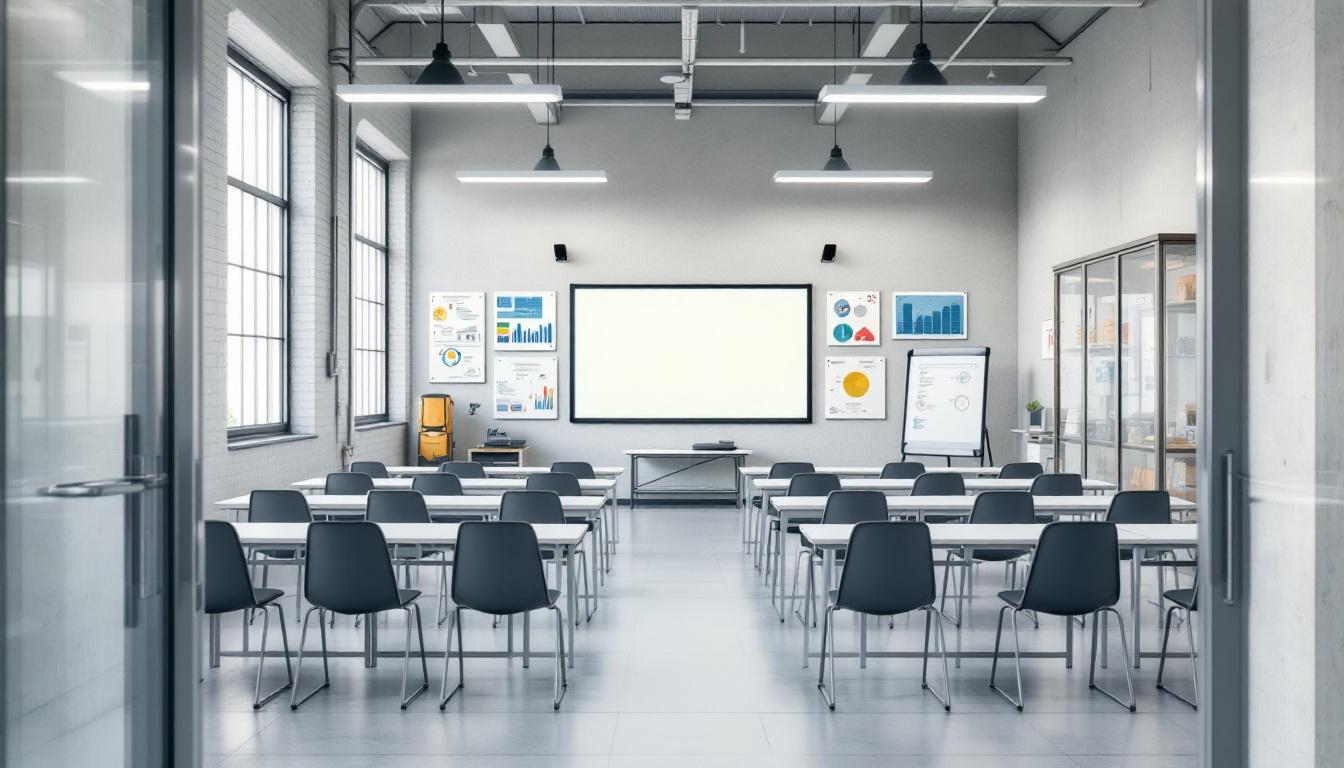
About Roederer Correctional Complex
Assessment and evaluation serve as the cornerstone of effective correctional management at Roederer Assessment Cntr, where comprehensive intake processes help determine appropriate placement and programming for individuals entering Kentucky's correctional system. Located in LaGrange, this KY correctional facility operates within the broader framework of the state's commitment to structured rehabilitation and public safety, serving communities throughout the region with careful attention to both security protocols and those incarcerated services that support successful outcomes.
The facility's approach typically emphasizes thorough evaluation procedures that may include medical screenings, educational assessments, and behavioral evaluations designed to create individualized pathways for each person in custody. Through these systematic processes, staff members generally work to identify specific needs, risk factors, and potential areas for growth that can inform future programming decisions. This correctional facility often serves as a critical entry point where important determinations about security classifications, housing assignments, and rehabilitation opportunities take shape, ultimately supporting the state's broader goals of reducing recidivism and promoting successful community reintegration.
Within LaGrange's correctional landscape, the center typically maintains essential services that may include basic medical care, educational programming, and structured daily routines designed to provide stability and direction. The facility's role in Kentucky's correctional system often extends beyond simple housing, encompassing the vital function of preparing individuals for their next steps within the system while maintaining the security measures necessary to protect both staff and those in custody.
Programs & Services
Personal transformation begins when those incarcerated at Roederer Assessment Center gain access to comprehensive developmental opportunities designed to address their individual needs and circumstances. The facility typically emphasizes a structured approach to rehabilitation, recognizing that meaningful change often requires addressing multiple aspects of an individual's life simultaneously. Through careful assessment and individualized planning, those incarcerated may access various offerings that focus on building skills, addressing underlying issues, and preparing for successful community reintegration.
Educational services form a cornerstone of the center's developmental approach, often including basic literacy instruction, GED preparation, and adult education opportunities that help participants strengthen their academic foundation. These educational offerings typically work in conjunction with vocational programs that may furnish training in practical skills relevant to employment opportunities upon release. The structured environment allows those incarcerated to focus on learning without external distractions, while vocational offerings often include hands-on training that builds both technical competencies and work habits essential for long-term success.
Support services and therapeutic offerings address the complex personal challenges that many participants face. Substance abuse treatment programs typically provide both group and individual counseling sessions designed to help those incarcerated understand addiction patterns and develop healthy coping strategies. Also available may be grief counseling services that help participants process loss and trauma, while domestic violence programs often focus on understanding relationship dynamics and developing healthier communication skills. Physical fitness opportunities typically complement these therapeutic offerings by promoting overall wellness and providing constructive outlets for stress management within the facility's secure environment.
Daily Life & Visitation
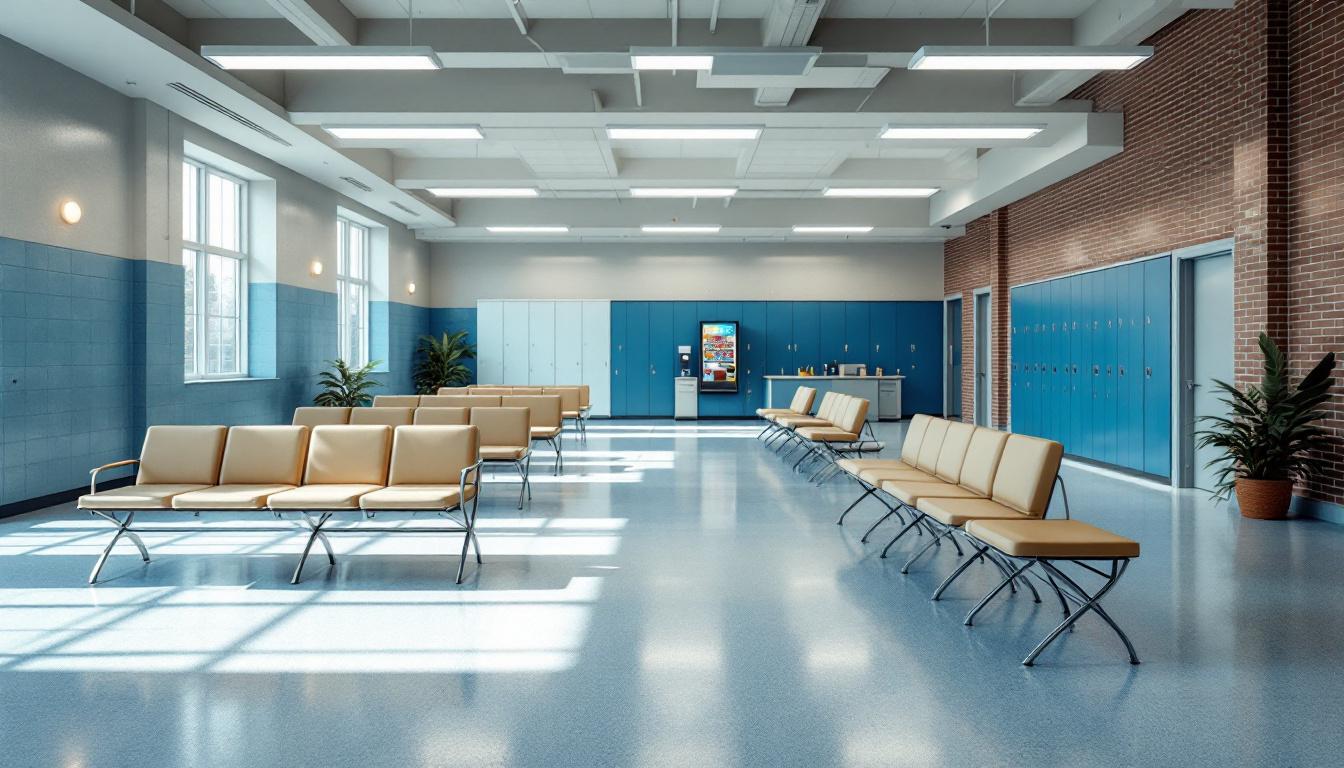
Maintaining connections with family and friends forms a cornerstone of the experience for those incarcerated at Roederer Assessment Center. The facility currently operates on a structured schedule that continues to emphasize both individual assessment needs and community interaction among residents. Daily routines typically begin early with count procedures, followed by meals served in communal dining areas that furnish opportunities for social engagement. Those incarcerated generally participate in various assessment activities, educational programming, and work assignments throughout the day.
Housing arrangements at the facility typically consist of dormitory-style accommodations or smaller housing units that encourage interaction among residents. Living spaces generally include basic furnishings and personal storage areas where those incarcerated may keep approved personal items and commissary purchases. Also, the dining experience serves as a central gathering point where residents share meals and maintain social connections. However, all activities operate within established security protocols appropriate for an assessment facility environment.
Programming schedules often include educational opportunities, recreational activities, and structured group sessions that help residents build positive relationships with peers and staff. Those incarcerated may typically access various forms of communication with their families, including phone calls and written correspondence, though specific policies may vary. Also, visitation programs generally allow for face-to-face contact with approved family members and friends, which continues to serve as an important element in maintaining outside connections. Work assignments within the facility typically furnish both structure and opportunities for skill development while contributing to the daily operations of the institution.
Ready to Connect?
Start communicating with your loved one today
Search for an Inmate
